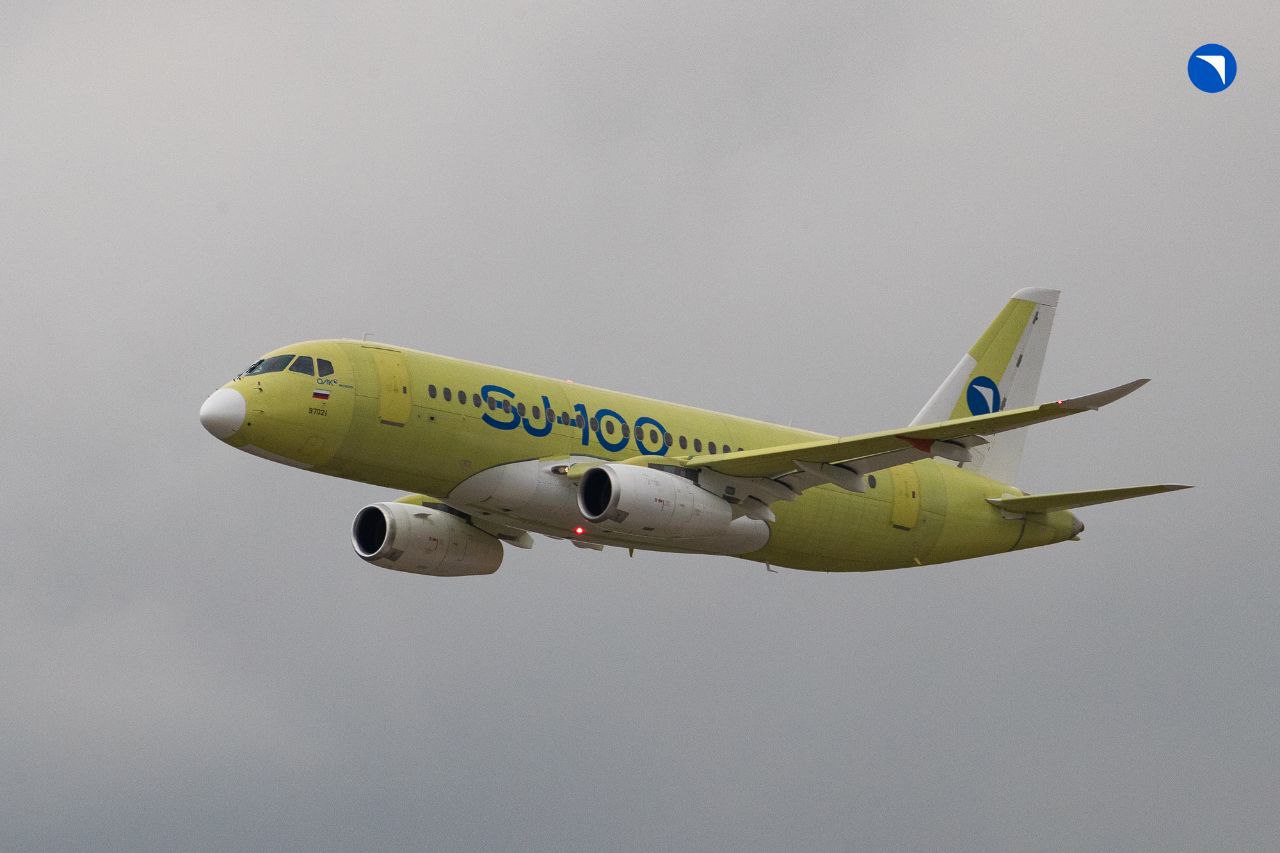The state corporation Rostec has denied reports about postponing the certification of the import-substituted Superjet to next year.
“Media outlets are spreading information that the certification of the import-substituted Superjet is being postponed to March 2026 due to delays in certifying the Russian PD-8 engine. This information is not true,” the press service of the state corporation stated.
“Certification of the PD-8 engine is scheduled for autumn 2025. Additionally, by the end of this year, the Superjet with domestic power plants is expected to complete its flight certification program. We are proceeding according to the planned timeline. Deliveries of the aircraft to airlines are scheduled to begin in 2026,” Rostec emphasized.
“Rostec enterprises are completing the import substitution program for the main systems and components of the SJ-100 aircraft at an accelerated pace,” said Vladimir Artyakov, First Deputy General Director of Rostec, as quoted by the press service.
According to Artyakov, the PD-8 engines have been handed over to aircraft manufacturers in Komsomolsk-on-Amur, “who, together with UEC representatives, will carry out refinement work directly at the plant and prepare the aircraft for its first flight with domestic power plants.”
He also noted that the main goal is “to begin flight testing and certification of the fully domestic airliner as soon as possible.”
The PD-8, a twin-spool turbofan engine, was developed by UEC-Saturn using advanced technologies and the latest domestic materials. To accelerate PD-8 certification, results from computer modeling are being utilized, according to the press service.
“The SJ-100 also received a domestic fuselage, which has been modified to simplify the production and maintenance of the aircraft. The airliner will become another model in the family of currently operating Superjet-type aircraft,” the statement added.
In the meanwhile, PJSC “Yakovlev”, the developer and manufacturer of Superjet 100 aircraft, has requested lawmakers to simplify the procedure for exporting aircraft spare parts outside Russia to ensure prompt technical support for foreign operators.
“We have three aircraft currently in Thailand. As is known, they are operated by the Royal Thai Air Force. Last year, we raised the issue and proposed amendments to Decrees 311 and 312, including an exemption for PJSC ‘Yakovlev’ to enable the supply of spare parts to Thailand. We would like to revisit that discussion,” said Vladimir Donchenko, Yakovlev’s Director of Customer Relations, during an aviation roundtable at the Federation Council on Thursday.
The decrees in question were enacted by the Russian government in March 2022 and established a temporary ban and permit-based procedure for exporting certain goods from the country.
Donchenko explained that, under the current legal framework, obtaining permission to export components takes a long time. “For example, we urgently need to export two data concentrator components and one nose landing gear strut. In practice, the process takes quite a while because it involves interagency approvals. I wouldn’t say any single agency delays it—each has its own regulations—but overall, the process is quite lengthy, especially for components of Russian origin. We have to prove their origin, sometimes their cost, and answer a number of other questions,” he said.
“As a state-owned company with foreign operators, we would like to have the ability to promptly support our operators without additional reviews and approvals,” Donchenko added.
He was supported by Pavel Mukhin, Deputy General Director and Chief Operating Officer of UTair, who noted that after a recent aircraft malfunction at a foreign airport, the company had to wait about a month for permission to export a replacement engine.
Anna Panina, Director of the Aviation Industry Department at the Ministry of Industry and Trade, reminded the audience that when the above-mentioned decrees were initially adopted, each export required a separate government order. Since then, the procedure has been significantly simplified and the approval timeline reduced to 20 days.
Andrey Dobryakov, Deputy Head of Rosaviatsiya (Federal Air Transport Agency), urged a balanced perspective on the situation and reminded attendees why these decrees were introduced in the first place. “If we’re talking about conceptual changes, that would mean canceling Decrees 311 and 312 entirely. But let’s not just ask the Ministry of Transport and the Ministry of Industry and Trade whether this is necessary—let’s ask the government,” he suggested.
Dobryakov also advised airlines facing difficulties exporting spare parts for aircraft repairs to fly domestically. “Not to diminish the airlines in any way, and certainly not calling for a revolution—colleagues, just fly within Russia. There are no such issues here. Why fly abroad? Flying internationally comes with risks,” he said.
Official Website of Youtube Channel – Altitude Addicts
